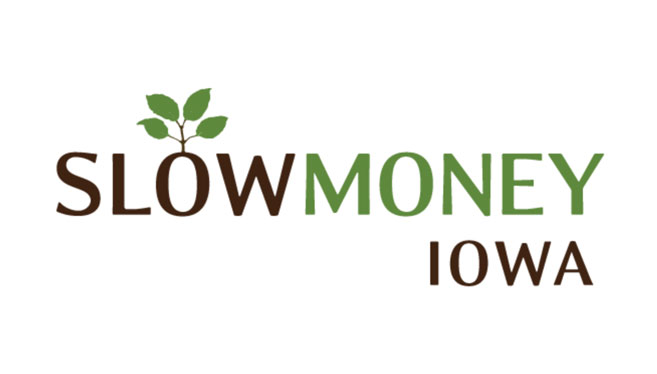Local Slow Money Group Gets Off to Slow But Steady Start
It took nearly a year to gain the trust of locals, but Iowa’s only Slow Money investment club announced this month that they have issued two loans, one to a cheesemaker in Muscatine and another to a farmer in Kalona.
“It’s been a real learning curve,” said Suzan Erem, the club’s chair and organizer. “What kind of loans do farmers and local food retailers really need? What kinds of terms are attractive? How creative were our club members willing to be?”
Ultimately, club members totaling 12 people from Johnson and Cedar counties, agreed on 3 percent loans of up to $20,000 for up to 5 years. Since the entire club only has $60,000 amassed, they won’t be able to grant many loans at the top figure, but they also work with borrowers on flexible start and payment schedules, little to no collateral and other creative terms identified with Slow Money investors.
Slow Money founder Woody Tasch’s experiences convinced him that Wall Street is doing nothing good for the economy or the country. In his book Slow Money he suggested that people should invest their money locally in fundamentals such as the production and provision of healthy food. Soon, people around the country began to organize local Slow Money investment clubs and chapters and Tasch found himself in the middle of a movement. He and his small staff offer advice to these groups including a periodic national meeting and a class for new chapters. Mostly, though, forming a Slow Money investment club is an open source kind of venture – interested people get on the web and pull down forms and information from other clubs.
The local club, which dubbed itself Iowa Pollinators, has posted its entire operating agreement on its site so people anywhere in Iowa can form a club without racking up legal expenses.
But Pollinators found it was hard to get potential borrowers to trust them. Some went to farmer’s markets and other meetings to see if anyone in Johnson or adjoining counties needed a loan to help them develop local food alternatives. Others went to the local food council meetings and still others reached out to the press. Morale flagged.
“I reminded them that the first name of Slow Money is ‘slow’ after all,” said retired attorney and Pollinator Judd Lawler. “They laughed. This group laughs a lot.” Then the club sent two delegates to the national Slow Money meeting in Louisville, Kentucky, late in the year. Those two returned with ideas to increase the potential for loans which the group then employed.
The group posted a simple pre-screening application on their website - IowaPollinators.com - for interested borrowers. If the basics are met – locally sourced, food-related, not a start-up, Johnson and contiguous counties – then two members volunteer to visit the applicant in person to report their impressions of the person and the business and to collect supporting documentation.
After a few false starts, the club received an application from Cesar Garrido in Muscatine who wanted to build on his existing food business to make Mexican white cheese with local milk to supply local groceries, restaurants and individuals. The loan went through and now he is organizing his cheese production business.
Next, some members of the group met James Nisly, an organic producer in Kalona, at the annual Iowa Organics conference at the University of Iowa and suggested that he could apply for a loan if he thought it could help his cash flow. His loan was approved in January for funds to defray the cost of a new cooler and some other farm improvements.
The group still has funds to lend, and is still open to investors. Iowa Pollinators requires a $5,000 investment to join, or invites others to start their own Slow Money investment club at any amount they like. Reading Woody Tasch’s book is a great place to start. Interested borrowers or investors can go to IowaPollinators.com for more information.





